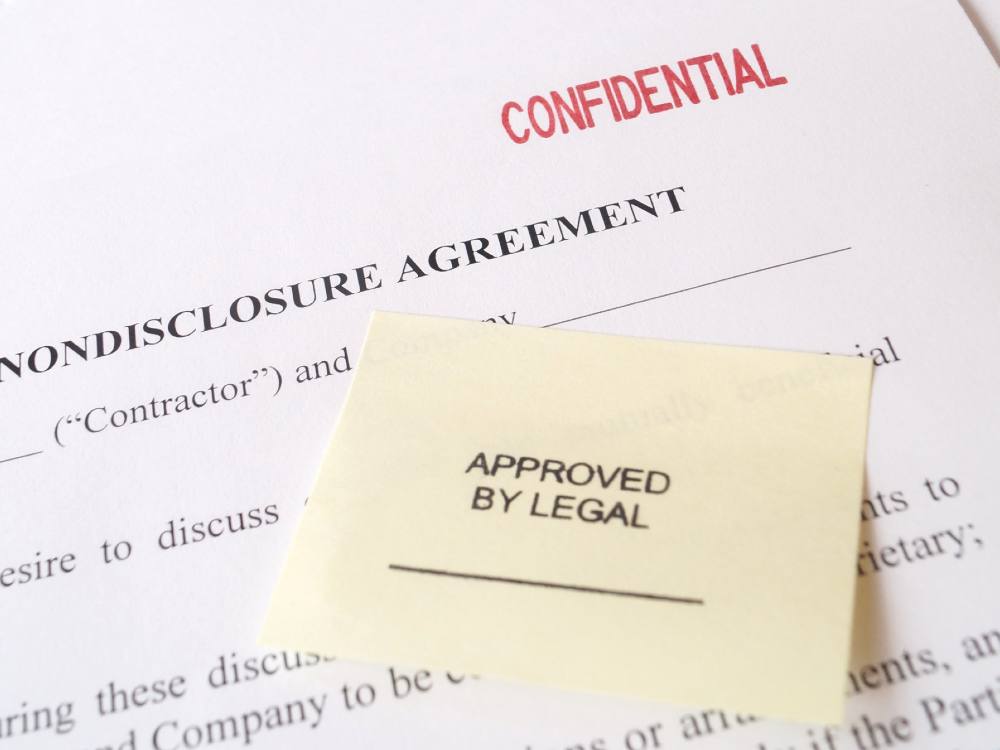Susan MacRae wants to talk about what happened to her, but she can’t.
As a young girl, MacRae signed a non-disclosure agreement that prohibits her from discussing sexual abuse she suffered, even with family members or therapists.
In 2018, a judge upheld that NDA even though the other party — her father — was dead. MacRae, a Vancouver writer, says it changed her life.
“As a poet, you deal a lot with silences. And if you have a forced silence in any part of your life, that can really taint your sense of self,” she said. “It really poisons it.”
MacRae is now part of an international campaign trying to restrict the use of NDAs — including in British Columbia.
The BC Green Party introduced a private member’s bill this month that would ban the use of such agreements in cases involving discrimination and harassment, arguing the prevalence of NDAs silences victims and has a chilling effect on would-be complainants. The bill isn’t likely to be debated.
Ontario, Manitoba and Nova Scotia are all pondering similar legislation, and the BC NDP government says it is also studying the issue — though it has not committed to legal reform.
Jennifer Khor, a lawyer at the Community Legal Assistance Society, says that lawyers are now reconsidering why and if NDAs are truly necessary.
“Particularly in Canada, the profession is looking at taking a more trauma-informed approach,” Khor said.
“Really the use of NDAs in this way is causing harm.”
Khor said non-disclosure agreements were originally used by employers to protect trade secrets and intellectual property.
But over her decades of legal work, she says they’ve been used to stop employees from talking about “almost anything,” especially situations involving whistleblowing or sexual harassment.
The argument for NDAs is that they grant both parties privacy and confidentiality. But Khor said many employees feel pressured to sign such contracts when accepting a job or negotiating severance or other settlements.
In some cases, she said, the contracts don’t have exceptions for people like family members or counsellors. They can also interfere with career prospects, she said, because people may not be able to tell future employers why they left that job. In some cases, Khor said, people may not come forward with issues at work because they anticipate having to sign an NDA, creating a chilling effect.
“They feel like they can’t access the support they want or talk to a counsellor. Sometimes I’ve heard it affects their next relationship, because they can’t talk about it and explain why they might be acting a certain way,” Khor said.
Today, the tide is turning against NDAs. Multiple U.S. states have passed or are considering laws limiting the use of such agreements. Ireland is set to pass its own. Prince Edward Island became the first Canadian province to pass such a bill in 2021. It came into force last year.
Part of that change was sparked by the Can’t Buy My Silence campaign, a grassroots movement begun in September 2021 by emerita law professor Julie Macfarlane and Zelda Perkins, a former assistant to Harvey Weinstein.
But Macfarlane says even she was shocked by how fast change has come.
“I think what has happened in the last 18 months has been really kind of remarkable. Because it feels like this is an issue for which the time has now come,” Macfarlane said.
By definition, we don’t know how many people have signed NDAs. But Macfarlane and Khor say their anecdotal experience is that such agreements are remarkably common.
“The pervasiveness of them in everyday working peoples’ lives has been so well hidden. And now I think the curtain is being pulled back a little bit here,” Macfarlane said.
The bill introduced by Green Leader Sonia Furstenau — which Macfarlane calls the “model” for Canadian provinces — would make it illegal to sign an NDA relating to sexual harassment or discrimination unless it is the express wish of the person harmed.
And if an NDA is signed, it says the agreement must be for a set and limited duration, and must have options for the harmed person to waive their own confidentiality.
It also explicitly states there must be exceptions to any confidentiality clause that allows a person to speak to a therapist, an elder and specified friends and family, among others.
B.C. Attorney General Niki Sharma was not available for an interview. In a prepared statement, she said the government had “been actively researching the use of NDAs and legislative developments in other jurisdictions to determine next steps in B.C.”
“Non-disclosure agreements and other confidentiality agreements can serve a role in some contexts when used appropriately but we don’t want them to be misused to silence survivors,” Sharma said.
The government hasn’t committed to supporting Furstenau’s bill, nor has it explicitly said if it plans to introduce its own legislation on the issue.
Macfarlane said some lawyers argue NDAs serve a role by guaranteeing confidentiality and privacy for the parties involved.
But Khor said those things can often be achieved through different forms of agreements.
The Canadian Bar Association, for example, adopted a resolution earlier this year urging members not to use NDAs in cases involving harassment and discrimination.
In most cases, Macfarlane said, people who sign NDAs do not want to talk about their experiences publicly. “There’s a very distorted public impression that everyone wants to scream from the rooftops,” Macfarlane said.
In reality, Khor said many people who sign NDAs may only want to discuss the matter with friends or medical experts but fear legal repercussions, even if they are not likely.
“The average person doesn’t know that,” she said.
Dalya Israel, the executive director of the Wavaw Rape Crisis Centre in Vancouver, says the organization has noticed an uptick in survivors who are limited in what they can discuss because of NDAs.
“We have a couple of survivors that access the crisis line a lot, because they are so unsure about how they can talk about their assault,” Israel said. She believes such agreements are detrimental not just for survivors, but also for perpetrators and organizations, since they conceal wrongdoing instead of creating an opportunity for accountability.
“They create fear around people choosing to report or seek accountability and create that larger freeze around the desire to seek out and engage people in talking about what’s happened to them,” Israel said.
MacRae has bittersweet feelings about the bill being introduced in B.C. On one hand, it’s something she and her mother have wanted for years. On the other, the law would only apply to new agreements and wouldn’t affect her own NDA or those already signed by other survivors. MacRae said she has written to lawmakers for years seeking change, and has long felt ignored.
“It’s wonderful to have the bill on here,” MacRae said. “But I don’t think it’s done.” ![]()
Read more: Rights + Justice, Politics
















Tyee Commenting Guidelines
Comments that violate guidelines risk being deleted, and violations may result in a temporary or permanent user ban. Maintain the spirit of good conversation to stay in the discussion.
*Please note The Tyee is not a forum for spreading misinformation about COVID-19, denying its existence or minimizing its risk to public health.
Do:
Do not: